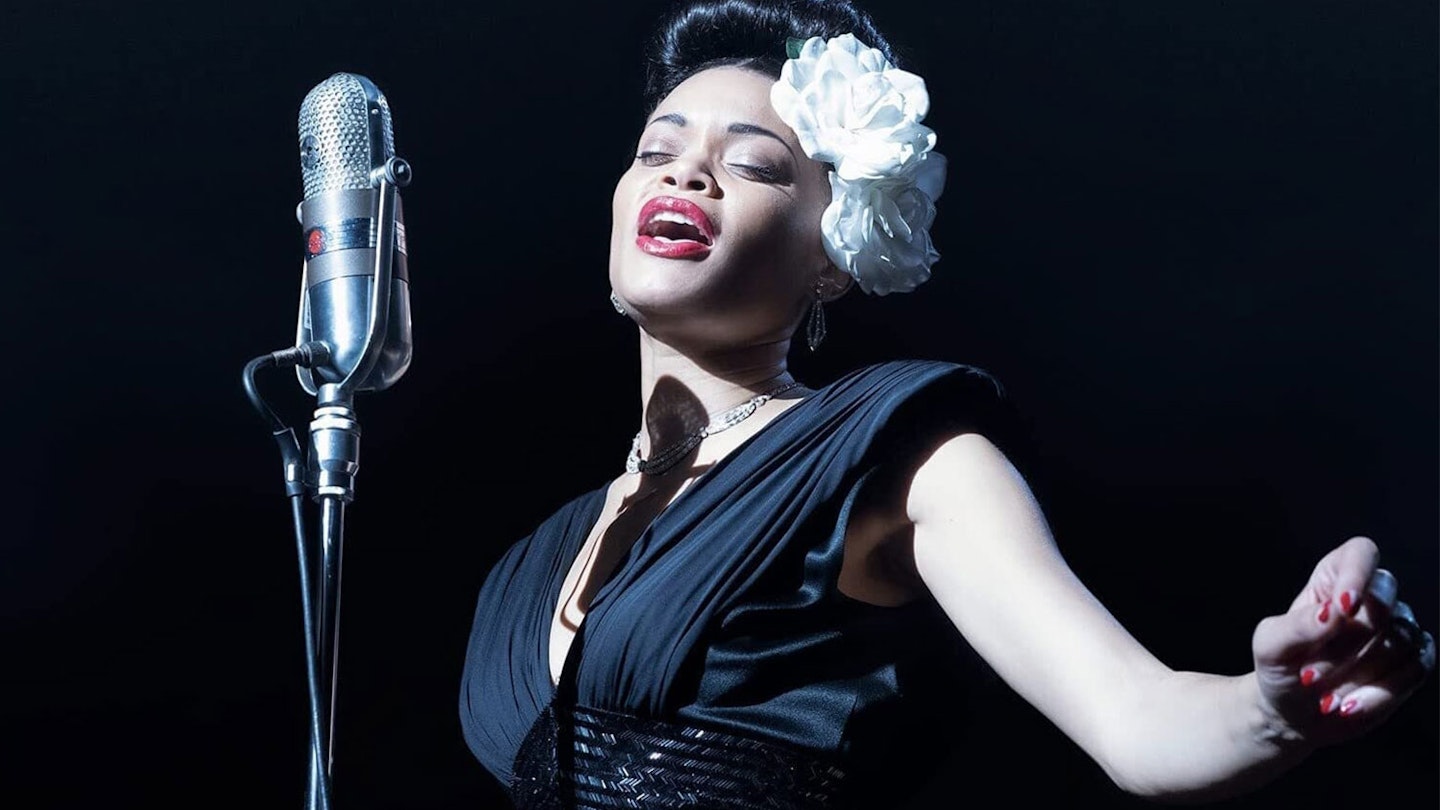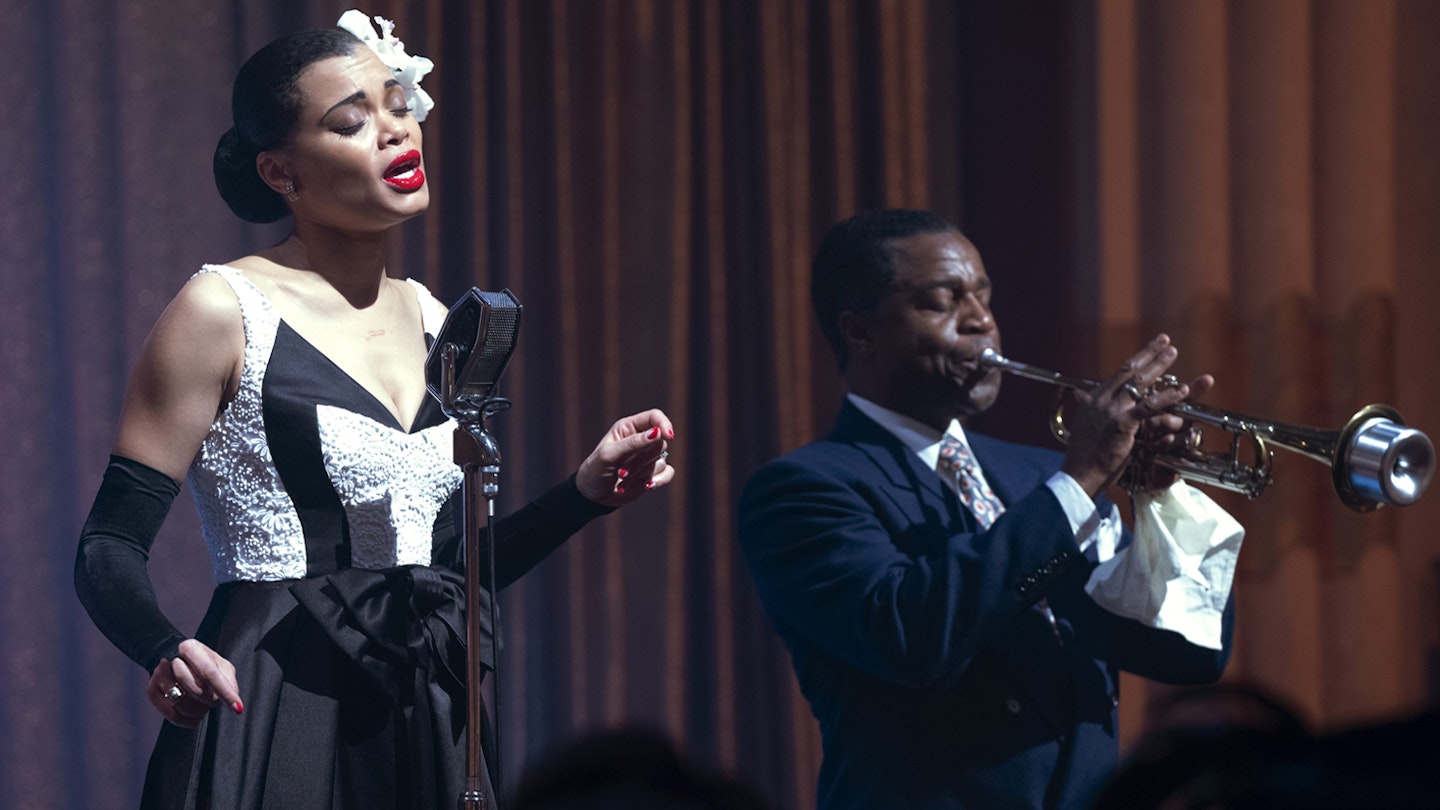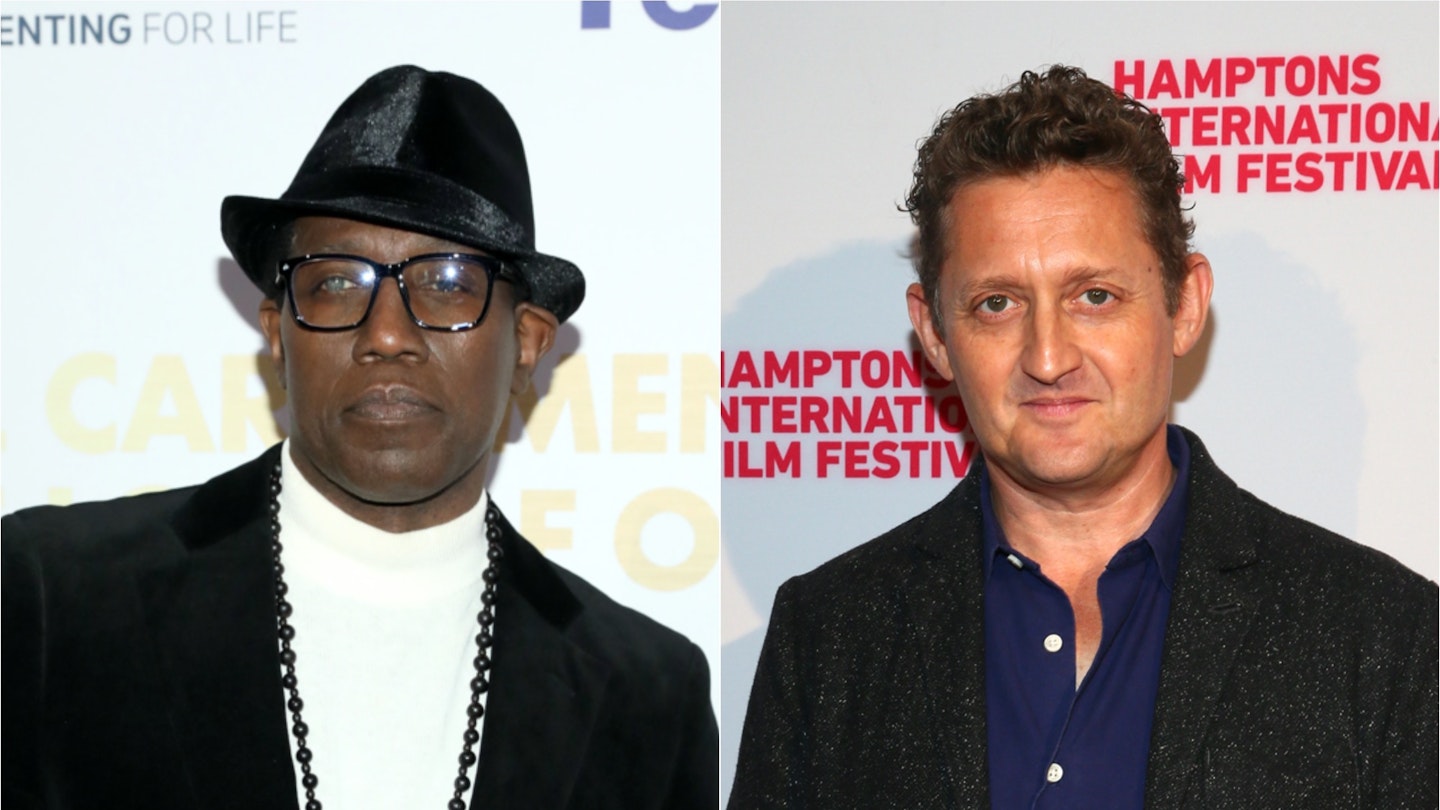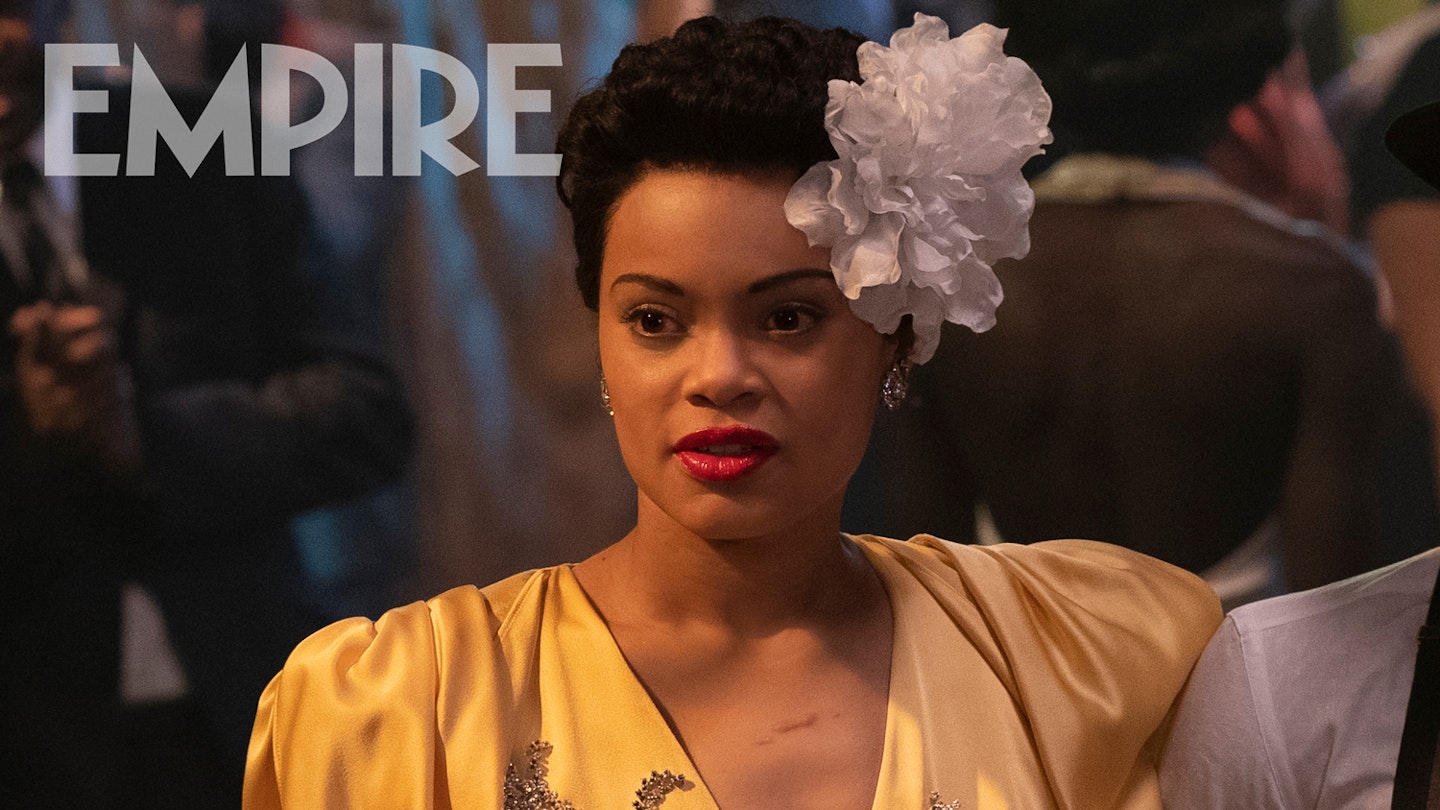There’s real power in the story of a song so incendiary, so shockingly truthful, so likely to fan the flames of an entire civil rights movement, that the American government sees it as a threat that must be stopped. And while that’s part of the narrative of Lee Daniels’ The United States Vs. Billie Holiday — exploring the legacy of the legendary jazz singer and her haunting, unflinching song ‘Strange Fruit’, about lynchings in the American South — it’s a thread that’s often lost among a scatter-shot portrait of Holiday’s life and the world she inhabited.

If the film’s focus hops around — from ‘Strange Fruit’, to Holiday’s heroin addiction, to her likely-romantic relationships with actor Tallulah Bankhead (Natasha Lyonne) and Black undercover Federal agent Jimmy Fletcher (Trevante Rhodes), to her partnerships with largely abusive men — so too does its structure. Its framing narrative is a tell-all interview with Reginald Lord Devine (Leslie Jordan) in 1957, and from there The United States Vs. Billie Holiday skips back to 1947, where the singer’s performances at nightclubs like Café Society remain under close watch by the FBI. What follows are all-too-brief snapshots of Holiday’s experiences of harassment on a personal and societal scale over the following decade, as the bureau uses the singer’s drug habit as a means to get her locked up and stop her from performing that devastating tune.
It often feels more like a film about the world, the people, the forces around Holiday.
The result is a film that too often feels stilted and inert, jumping from incident to incident (the film’s titular court case and Holiday’s subsequent jail-time comes remarkably early, and feels like a minor footnote in the story) without really getting to the heart of Holiday herself. With an array of side-characters that drift in and out of the story, it often feels more like a film about the world, the people, and the forces around Holiday — but even there, it can’t quite commit to the most interesting threads. As Rhodes’ Jimmy Fletcher finds himself repeatedly instructed by his white bosses to find a reason to bring Holiday down, his inner conflict is touched on without being seriously interrogated.
For all its zig-zagging attention span and clunky dialogue, what The United States Vs. Billie Holiday does have is an arresting central performance from American singer Andra Day, captivating as the woman in the eye of the storm. Her Holiday is complex, constantly battling all manner of horrors the world throws her way, sometimes charming, other times impossible. And as a performer herself, Day is commanding in the on-stage sequences, her own husky tone perfectly suited to inhabiting Holiday’s smoky vocals. It’s a turn that in itself makes the film a worthwhile endeavour.
Day’s performance is beautifully captured by Andrew Dunn’s cinematography, shot on film with anamorphic lenses for a gorgeously textured, tactile aesthetic that’s rich with atmosphere. For all that the film often lingers on uncomfortable imagery — with historic footage of Black victims of white violence, and depictions of forceful sexual encounters — there’s real purpose to the presentation. One remarkable single-shot sequence sees Holiday leave her tour bus and accidentally stumble upon the horrifying aftermath of a lynching, breaking down in the victim’s house, staggering into a backstage room where she prepares to shoot up, before eventually being shepherded onto a stage, where she finally performs ‘Strange Fruit’ in full. In that central moment, Daniels knows exactly what he has, the camera remaining firmly on Day’s face across the entire song. If only the rest of the film was this clear and incisive in its vision.



